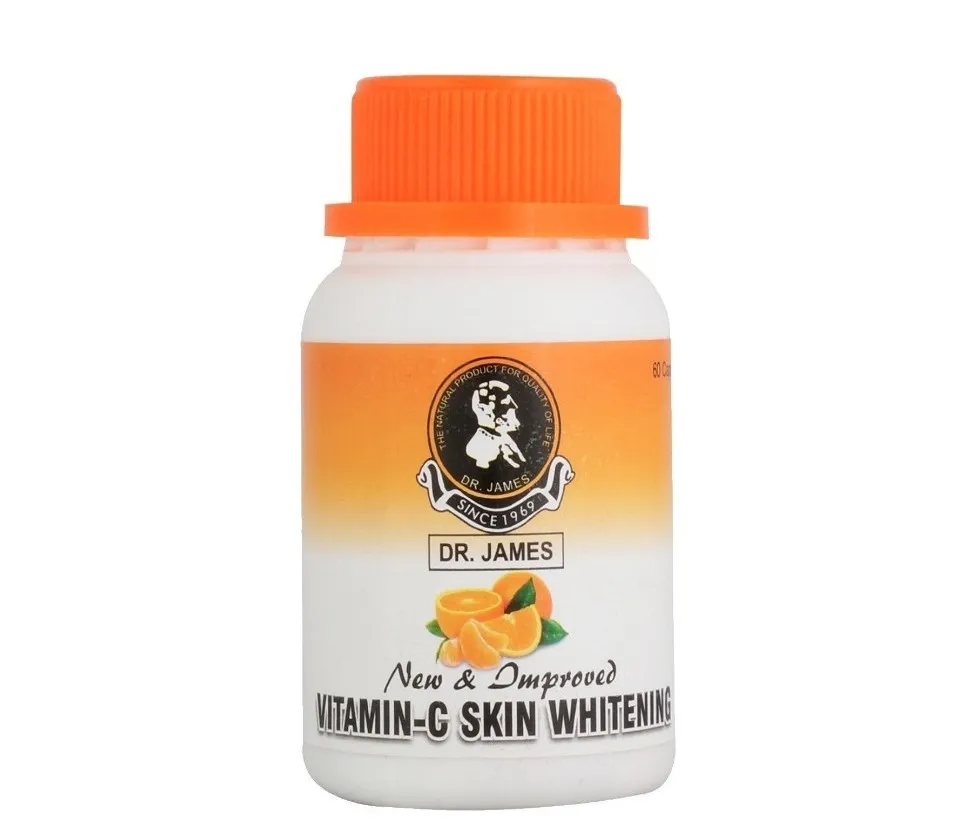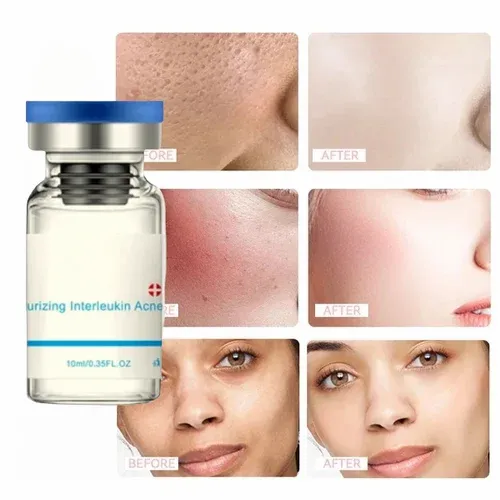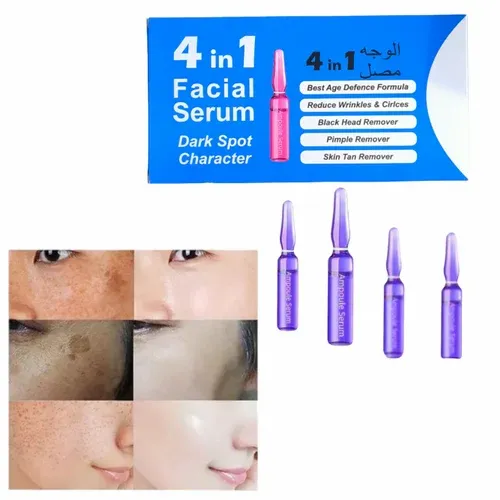What is Vitamin C and How Does it Benefit Skin?
Vitamin C, also known as ascorbic acid, is a powerhouse nutrient renowned for its numerous health benefits, particularly its positive impact on the skin. It’s a potent antioxidant that plays a crucial role in protecting the skin from environmental damage and supporting overall skin health. The benefits of Vitamin C for skin whitening are numerous. Understanding its functions is key to appreciating how it can transform your complexion. Vitamin C is not produced by the human body and must be obtained through diet or supplementation, making it essential for maintaining optimal skin health and radiance. Its versatility and effectiveness make it a highly sought-after ingredient in skincare products, and for good reason.
The Role of Vitamin C in Skin Whitening
Vitamin C is a cornerstone ingredient in skin whitening, offering multiple pathways to achieve a brighter and more even skin tone. It works through several mechanisms, primarily targeting melanin production, the pigment responsible for skin color. By inhibiting the enzyme tyrosinase, which is necessary for melanin synthesis, Vitamin C reduces the formation of dark spots and hyperpigmentation. This action helps to lighten the skin and reduce the appearance of unevenness. Furthermore, Vitamin C’s antioxidant properties protect the skin from free radicals, which can contribute to skin darkening and premature aging, thereby indirectly supporting skin whitening. The effectiveness of Vitamin C in skin whitening has made it a popular and reliable choice for those seeking a brighter and more radiant complexion.
Amazing Benefit 1 Vitamin C as a Powerful Antioxidant

One of the most significant benefits of Vitamin C for skin is its potent antioxidant properties. Antioxidants neutralize free radicals, unstable molecules that damage skin cells and accelerate aging. Free radicals are generated by environmental stressors such as pollution, UV radiation, and smoking. They cause oxidative stress, leading to wrinkles, fine lines, and uneven skin tone. By neutralizing these harmful molecules, Vitamin C protects the skin from damage and helps maintain a youthful appearance. Incorporating Vitamin C into your skincare routine is a proactive step towards protecting your skin from environmental aggressors and preserving its natural radiance. The antioxidant action is foundational to many of the other benefits Vitamin C offers, contributing significantly to overall skin health and appearance. This will help with the overall skin whitening.
How Antioxidants Help with Skin Whitening
Antioxidants like Vitamin C play a crucial role in skin whitening by combating the factors that lead to skin darkening. Free radicals can stimulate melanin production, resulting in dark spots and uneven pigmentation. By scavenging these free radicals, Vitamin C prevents this stimulation, thereby reducing the formation of melanin. This protective action allows the skin to maintain its natural color and reduces the appearance of dark spots and hyperpigmentation. In addition, antioxidants help to repair existing damage caused by free radicals, which can contribute to a more even skin tone. The consistent use of antioxidants like Vitamin C helps to create a brighter, more luminous complexion by actively defending against the environmental stressors that contribute to skin discoloration. This directly supports skin whitening efforts.
Amazing Benefit 2 Vitamin C Inhibits Melanin Production
The ability of Vitamin C to inhibit melanin production is a key factor in its effectiveness for skin whitening. Melanin is the pigment that gives skin its color, and its overproduction can lead to hyperpigmentation, such as dark spots and uneven skin tone. Vitamin C works by inhibiting tyrosinase, an enzyme necessary for melanin synthesis. By interfering with this process, Vitamin C helps to reduce melanin production, leading to a lighter, more even complexion. This action not only lightens existing dark spots but also prevents the formation of new ones, providing a significant long-term benefit for those seeking skin whitening. Regular use of Vitamin C products helps to regulate melanin production, resulting in a brighter and more uniform skin tone. This also helps with skin whitening.
The Science Behind Melanin and Skin Pigmentation

Understanding the science behind melanin and skin pigmentation provides insight into how Vitamin C works to whiten skin. Melanin, produced by melanocytes, is responsible for protecting the skin from UV radiation. However, factors like sun exposure, inflammation, and hormonal changes can trigger excessive melanin production, leading to hyperpigmentation. Vitamin C targets this process at the enzymatic level, specifically by inhibiting tyrosinase, the key enzyme in melanin synthesis. By reducing tyrosinase activity, Vitamin C helps to regulate melanin production, reducing dark spots and creating a more even skin tone. This targeted action makes Vitamin C a scientifically-backed ingredient for achieving a brighter and more luminous complexion. This science is key to the skin whitening process.
Amazing Benefit 3 Vitamin C Promotes Collagen Synthesis
Vitamin C’s role in promoting collagen synthesis is another critical benefit for skin health. Collagen is a protein that provides structure and elasticity to the skin, helping to maintain its firmness and reduce the appearance of wrinkles. Vitamin C is essential for the production of collagen, as it is a cofactor in the enzymes that synthesize this crucial protein. By stimulating collagen production, Vitamin C helps to improve the overall texture and appearance of the skin, making it look smoother and more youthful. This support for collagen synthesis also contributes to a more even skin tone and can help in reducing the visibility of dark spots and other signs of aging, enhancing the skin whitening effect. Vitamin C is a key player in promoting overall skin health, including skin whitening.
The Importance of Collagen for Skin Health
Collagen is a fundamental component of healthy skin, providing structure, strength, and elasticity. It acts as a scaffolding that supports skin cells, keeping them firm and resilient. As we age, collagen production naturally declines, leading to wrinkles, sagging skin, and a less vibrant complexion. Vitamin C plays a crucial role in maintaining collagen levels by supporting its synthesis. By promoting collagen production, Vitamin C helps to strengthen the skin, reduce the appearance of wrinkles, and improve overall skin texture. This not only contributes to a more youthful appearance but also enhances the skin’s ability to repair itself and maintain a more even tone, which complements skin whitening efforts. Collagen is a very important aspect of skin whitening and Vitamin C is helping this process.
Amazing Benefit 4 Vitamin C Reduces Hyperpigmentation

One of the most sought-after benefits of Vitamin C is its ability to reduce hyperpigmentation, which includes dark spots, age spots, and uneven skin tone. Vitamin C works by inhibiting tyrosinase, the enzyme responsible for melanin production. By reducing melanin synthesis, Vitamin C helps to lighten existing dark spots and prevent new ones from forming. This results in a more even complexion and a brighter appearance. The consistent use of Vitamin C can lead to a noticeable reduction in hyperpigmentation over time, making it a popular choice for those seeking skin whitening. Vitamin C’s targeted action on melanin makes it an effective and reliable treatment for various forms of skin discoloration. This is one of the key aspects of skin whitening.
How Vitamin C Fades Dark Spots and Uneven Tone
Vitamin C fades dark spots and improves uneven skin tone through multiple mechanisms. Primarily, it inhibits the production of melanin, the pigment responsible for dark spots. This prevents new dark spots from forming and gradually lightens existing ones. Additionally, Vitamin C’s antioxidant properties help protect the skin from further damage that can worsen hyperpigmentation. Vitamin C also promotes cell turnover, helping to shed the pigmented cells and reveal a brighter, more even complexion. By combining these actions, Vitamin C provides a comprehensive approach to fading dark spots and creating a more uniform skin tone. Regular application can lead to significant improvements over time, making it a powerful ally in achieving a brighter complexion. This is key to understanding how skin whitening works.
Amazing Benefit 5 Vitamin C Protects Against Sun Damage
Vitamin C offers substantial protection against sun damage, a major contributor to skin darkening and premature aging. As a potent antioxidant, Vitamin C neutralizes free radicals generated by UV radiation, preventing them from damaging skin cells. This protective action reduces the risk of sunburn, sunspots, and other forms of sun-induced skin damage. While Vitamin C does not replace the need for sunscreen, it enhances the skin’s defense against UV rays. By incorporating Vitamin C into your skincare routine, you can provide an added layer of protection, helping to maintain a brighter and more youthful complexion. This is crucial for those seeking skin whitening, as sun damage can reverse the effects of skin-lightening treatments and contribute to further discoloration. The protection provided is key to skin whitening.
The Link Between Sun Exposure and Skin Darkening

Sun exposure is a primary cause of skin darkening and hyperpigmentation. When the skin is exposed to UV radiation, melanocytes produce more melanin to protect the skin from damage. This increased melanin production leads to tanning and, in some cases, the formation of dark spots and uneven skin tone. Regular sun exposure can exacerbate existing hyperpigmentation and hinder skin-whitening efforts. Protecting the skin from sun damage is crucial for maintaining a bright and even complexion. Using sunscreen, wearing protective clothing, and avoiding prolonged sun exposure are essential steps to prevent further darkening and maximize the effectiveness of skin whitening treatments. This also helps with the skin whitening process.
Methods for Using Vitamin C for Skin Whitening
Vitamin C can be incorporated into your skincare routine in several ways, each offering different benefits. The most popular methods include serums, creams, and oral supplements. Serums are often preferred due to their high concentration of Vitamin C and their ability to penetrate the skin deeply. Creams provide a milder option and are often combined with other beneficial ingredients. Oral supplements offer systemic benefits, supporting skin health from within. The best method depends on individual skin type, sensitivity, and personal preference. Combining different methods can provide a comprehensive approach to skin whitening, maximizing the benefits of Vitamin C. This makes skin whitening a more targeted approach.
Vitamin C Serums and Creams
Vitamin C serums and creams are the most common topical applications for skin whitening. Serums typically contain a higher concentration of Vitamin C, allowing for deeper penetration and more effective results. Creams offer a gentler approach and often include additional ingredients like moisturizers and other antioxidants. When choosing a product, look for formulations with L-ascorbic acid, the most potent and well-researched form of Vitamin C. It is also important to consider the product’s stability, as Vitamin C can degrade when exposed to light and air. Choose products in dark, airtight containers to maintain their efficacy. Consistency is key for seeing results, and using these products daily as part of your skincare routine can lead to a brighter and more even complexion. Serums and creams are key to skin whitening.
Choosing the Right Vitamin C Product

Selecting the right Vitamin C product involves considering several factors to ensure optimal results. Look for products with L-ascorbic acid, the most effective form of Vitamin C. The concentration of Vitamin C also matters; a concentration of 10-20% is generally recommended for effectiveness. Consider the product’s packaging; choose dark, airtight bottles to prevent degradation from light and air. Other ingredients, such as ferulic acid and vitamin E, can enhance the stability and effectiveness of Vitamin C. Always perform a patch test before applying a new product to your entire face to check for any adverse reactions. Consulting a dermatologist can help you choose a product that best suits your skin type and concerns. Choosing the right product is key for skin whitening.
Oral Vitamin C Supplements and Dosage
Oral Vitamin C supplements offer systemic benefits for skin health and can complement topical treatments for skin whitening. The recommended daily dosage of Vitamin C varies, but typically ranges from 500 to 1000 mg. However, it’s always best to consult with a healthcare professional before starting any new supplement regimen. Oral supplements can boost the body’s overall antioxidant capacity, which can indirectly support skin whitening by reducing oxidative stress. While oral supplements alone may not provide the same targeted effects as topical applications, they can contribute to a more radiant complexion when combined with a balanced diet and a comprehensive skincare routine. The right dosage is also important for skin whitening.
Dietary Sources of Vitamin C for Skin Health
Incorporating Vitamin C-rich foods into your diet is a natural way to support skin health and skin whitening. Excellent sources of Vitamin C include citrus fruits like oranges, grapefruit, and lemons, as well as berries, such as strawberries and blueberries. Other good sources include bell peppers, broccoli, spinach, and kale. Consuming these foods provides the body with the essential nutrients needed to support collagen production, protect against free radical damage, and promote overall skin health. A balanced diet rich in Vitamin C can complement topical treatments and supplements, contributing to a brighter and more radiant complexion. The right diet helps with skin whitening.
Potential Side Effects and Precautions

While Vitamin C is generally safe, it’s important to be aware of potential side effects and precautions. Topical Vitamin C products can sometimes cause mild irritation, redness, or tingling, especially when first starting to use them. Always perform a patch test before applying the product to your entire face. Individuals with sensitive skin should start with a lower concentration of Vitamin C. Excessive intake of oral Vitamin C supplements can lead to digestive issues such as nausea, diarrhea, and abdominal cramps. It’s crucial to consult with a dermatologist or healthcare professional before starting any new skincare routine or supplement regimen, especially if you have existing skin conditions. Knowing the potential side effects helps with skin whitening.
Consulting a Dermatologist or Skincare Professional
Consulting a dermatologist or skincare professional is highly recommended when considering Vitamin C for skin whitening. A professional can assess your skin type, identify any underlying skin concerns, and recommend the most appropriate products and dosages for your specific needs. They can also provide guidance on how to incorporate Vitamin C into your skincare routine effectively and address any potential side effects. A dermatologist can also offer more advanced treatments, such as chemical peels or laser therapy, to enhance the skin-whitening results. Seeking professional advice ensures that you are using Vitamin C safely and effectively, maximizing its benefits while minimizing any risks. Professional advice is a good start for skin whitening.
